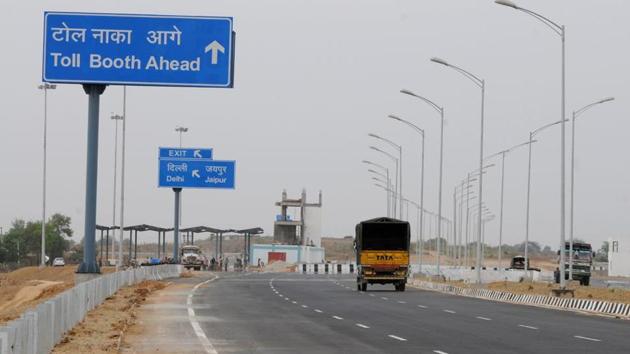Four years of Modi govt: Roadways revived, but real challenge is raising money for expansion
If the Vajpayee government’s success was in upgrading the national highways, the NDA-II government has the Bharat Mala — building 24,800 kms of roads connecting coasts to borders to expressways.
“When a network of good roads is created then the economy of the country also picks the pace,” Prime Minister Narendra Modi said in August 2017 at a ceremony to lay the foundation stone for a national highway project in Udaipur.

Like the golden quadrilateral of NDA-I (which governed India between 1999 and 2004), an ambitious project that connected four major cities in the country with a highway network, the NDA-II government too had sets its eyes on roads, setting the bar high for a sector that has been hit post-2007 with over 400 stalled projects and delays in meeting deadlines.
And the sector did make considerable strides in the past four years of Modi government. In 2014, seven kilometres of roads were getting built per day; this number rose to 28km per day in 2017-18. This is still way below the 41km per day target set by the Union road transport and highways ministry but this has not stopped the government from setting a more ambitious target of constructing 45km per day this fiscal.
If National Highways Development Project — the largest government initiative to date to expand and upgrade the capacity of the India’s shambolic highway network — was the highlight of the Atal Bihari Vajpayee government, the Modi government wants to leave its mark with Bharat Mala, the ambitious program to build 24,800km of highways running through economic corridors, border and coastal areas and expressways. The ₹6.92 lakh crore programme is expected to give a big push to the economy by generating a huge number of jobs apart from stoking demand for a variety of products (including steel and cement). Though highway development is back on track for now, experts said the real challenge is to raise money to fund the ambitious expansion programmes and getting private players back in the fold.
“The focus pre-2014 starting with UPA-I was also on highway development but they were primarily dependent on PPP (Public Private Partnership) model. The impact of economic downturn saw private players withdrawing from the sector. Projects got stuck, banks were reluctant to lend…. This government revisited the sector to address the bottleneck. It moved from the PPP model to EPC (Engineering Procurement Contract) where 100% of the project is public funded,” said Vishwas Udgirkar, partner, Deloitte India.
It also came up with two new models, the hybrid annuity one, where the government gives 40% of the construction cost, while the developer invests the remaining 60% and “Toll Operate Transfer” where the concessionaire pays a one-time concession fee upfront to operate and toll the project for a 30-year concession period.
“This has kept the sector going for the time being and highway development is back on track,” Udgirkar added.
But experts concede that raising resources to implement the ambitious highway expansion programme is going to be the biggest challenge before the government.
“The government managed to fix the projects but the revenue side did not get fixed. With oil prices hitting the roof, the government’s headroom to pay for EPC projects will become more difficult. Lenders will be more cautious because they don’t know what will happen in the 2019 elections,” said Pravesh Minocha, group managing director, Feedback Infra, an infrastructure consulting firm. He added, “If the sector has to flourish in the medium term, private players will have to be lured back to the sector. The government will have to fix issues on the revenue side.”
But highways minister Nitin Gadkari is upbeat and said funds will not be a constraint. “We have the capacity to implement the massive highway expansion programme that we have planned. The initiatives that we took in the last three years to revive the sector are showing results now,” Gadkari told HT in an interview.
Realising that road construction is vital for creating jobs and raising incomes, Gadkari’s ministry has drawn up a list of 200 road projects worth about ₹1.5 lakh crore — likely to be completed by mid-2019 — which it wants to showcase ahead of next year’s Lok Sabha elections.
In all, the road ministry plans to complete 416 projects worth ₹3.26 lakh crore by 2020.






